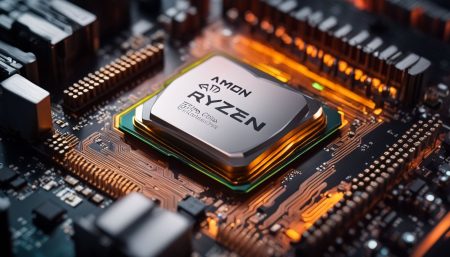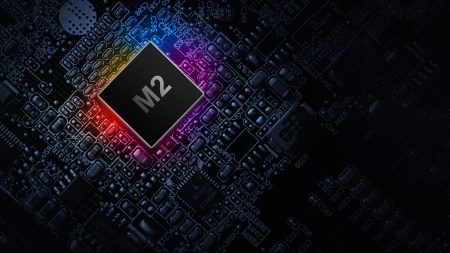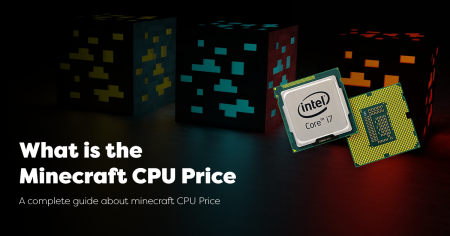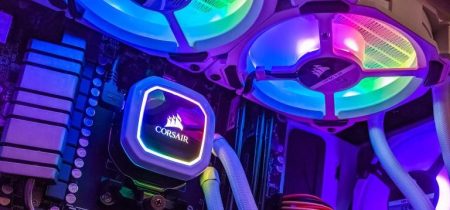A slow computer can be incredibly frustrating. It can delay routine tasks, result in unexpected program crashes, and leave you feeling like you’re using ancient technology. Thankfully, there are some easy steps you can take to make your CPU run faster. So put on your nerd cap and prepare for some tech overhauling. It won’t take long, and you will be back to work or play.
Tips to Make Your CPU Run Faster
1. Free Up Hard Drive Space
One of the simplest and most effective ways to improve your computer’s performance is to free up disk space on its hard drive. There are a few ways you can do this. First, look for files you can easily delete without hurting the functionality of your system.
You can look for temporary internet files or old downloads. If you want to keep large media files on your computers, such as music or videos, an external hard drive is a great way to store and back up all that data. Finally, consider using a disk cleanup program to erase junk data accumulating over time on your system. These programs scan through all the files on your computer and allow you to quickly get rid of them.

2. Identify the Programs That Are Using Up the Most CPU Time
Another step to help your computer run faster is identifying the programs using the most CPU time. This will allow you to weed out any programs hogging more resources than they need and ensure only critical processes are running on your machine.
To peek at your computer’s processes, simply right-click on the Task Manager icon near the bottom-right corner of your screen and choose “Task Manager.” You can then navigate to the “Processes” tab for an overview of everything running. You can then sort by CPU usage to identify programs using more resources than necessary. If you notice any programs taking up oversized CPU time, consider uninstalling them.
3. Update Your Operating System and Software Applications
To make sure your computer is running at its optimal speed, it’s important to keep the operating system and all software applications up-to-date. This will ensure you’re getting the best performance from your device. Newer versions typically offer more efficient performance than older ones, so it is a good idea. You can also improve your computer’s speed by adjusting its power settings to prioritize performance over battery life. This prioritizing will ensure your machine is always working at peak capacity.
4. Defragment Your Hard Drive
Fragmentation occurs when you store files in multiple places on a hard drive instead of one continuous block of space. Fragmentation makes it harder for your computer to access all parts of the file at once. Thus, you will notice a significant slowdown in the speed.
You must defragment (or “defrag”) your hard drive to fix this issue. Defragmentation will reorganize all the data on your hard drive. Your computer will take less time to read the data when accessing different applications or files.
5. Use a Third-Party Program to Improve CPU Performance
If you want to take a more targeted approach towards speeding up your computer, several third-party programs available can help you. These typically provide more robust and comprehensive performance enhancements than the built-in tools. Thus, these tools are ideal for squeezing every drop of speed out of their machines.
These programs offer an array of powerful tools that can optimize your machine in various ways. You can go from improving CPU speed to cleaning out junk data on your hard drive.
6. Install a Ram Upgrade for Faster Memory Access
Suppose your computer seems to run noticeably slower when multitasking. You might benefit from upgrading its random access memory (or “ram”). This hardware component stores information that the CPU can directly access. Thus, a better RAM will allow your system to work more rapidly and efficiently by expediting data transfer. Ram upgrades are affordable, easy to set up, and can improve the computer’s performance when handling multiple applications or tasks simultaneously.
7. Clean Your Computer’s Cooling System to Ensure Optimal Heat Dissipation
Over time, dust and other debris inside your computer can build up around its internal components. Debris or dust can cause more heat in such parts than usual. This is a normal occurrence that shouldn’t be worrisome. However, if it causes the temperature inside your machine to rise too high, it may harm performance.
There are two simple steps you can take to prevent this from happening. First, regularly clean your computer’s cooling system to dislodge any accumulated dust or debris. Additionally, make sure to keep the machine in an open area with good airflow so it doesn’t become overheated. With a little effort and proactive maintenance, you can ensure your device runs as smoothly and efficiently as possible.

8. Disable Any Startup Programs That You Don’t Need
Startup programs are Windows and Mac OS X items that automatically load whenever you start your system, regardless of whether or not you are using them. Specific startup programs can be helpful for frequently-accessed applications like web browsers.
However, it can also cause your system to run slower than it should if you have too many running simultaneously. To help your CPU run faster, disable any unnecessary startup programs and free up some processing power for other tasks.
9. Remove Any Unused Files for More Hard Drive Space
If your computer’s hard drive gets filled with unused files, it can slow down its performance. You don’t necessarily have to delete any files permanently. You can move them to an external drive or cloud storage if you need to free up some space on your computer. Many operating systems include a built-in tool that helps you identify and remove unnecessary files. Make sure you use those operating systems to free up much-needed gigabytes.
With these tips, you can help speed up your computer and ensure it runs smoothly for years to come.
Importance of a Fast-Working CPU
A fast working CPU is vitally essential for a computer to perform at its best. It determines the speed of executing instructions. A computer with a slow CPU can easily get bogged down, even with small workloads. Modern-day computers are now equipped with multi-core CPUs that can handle massive amounts of data processing.
Furthermore, a fast-functioning CPU ensures better multitasking performance and minimal lags or pauses when running multiple programs simultaneously. Moreover, you can experience an improved gaming experience with a fast CPU. For these reasons, having a faster CPU is essential for the everyday working of any modern computer.
Conclusion
Now, you do not need to put up with a slow machine. Improving the performance of your CPU doesn’t have to be difficult. Focus on freeing up disk space, defragmenting when necessary, and keeping operating systems and drivers current with their newest releases. You should see marked improvements in speed almost immediately. You will have a much more responsive machine with just a few simple steps in no time.














